Catchphrase is another of those game shows (I’m thinking of Family Fortunes, Bullseye etc.) where its viewers could often be found in an apoplexy of rage, yelling ‘But it’s SO EASY! Why CAN’T you get it? How can you possibly NOT KNOW what the answer is?’ at the television screen.
Yes, yes - I know all about the pressure of answering when you’re actually in the studio, against the clock and with the audience gawping at you, but honestly, Catchphrase’s simplicity often took ‘the bleedin’ obvious’ to a new level.
Originally hosted by comedian Roy ‘Oh it’s good, it’s not right’ Walker, he would introduce a male and a female contestant, who would appear into the neon-lit set via the much loved 1980’s gimmick of a revolving set. They would stand behind buzzers facing a large screen, which to begin with would display nine amounts of money with the computer flashing quickly over each one. One contestant would press their buzzer, and whichever amount of money the computer stopped on would be how much they would win for every correct answer.
To get the round going an animated catchphrase would appear on the screen, accompanied by music (various different types would be used throughout the show). A bell would ring when the catchphrase was complete, and the players could then buzz in to answer. Many of these featured the show mascot Mr Chips, who was an irritatingly chirpy golden robot.
Whoever got it right would get the money, and then get control of the Bonus Catchphrase board, where £100 (or multiples of, in later rounds) was up for grabs in the Bonus Bank. The catchphrase here was hidden behind nine squares, and a press of their button would take one random square away, revealing a small part of the puzzle. (The most remembered of all Bonus Catchphrases started off by slowly revealing Mr Chips looking like he was enjoying himself just a bit too much for a family show, much to the hysteria of the contestants, Walker and the audience. It turned out he was simply snake charming. And that’s not a euphemism either.)
The contestant would try and work out what the whole picture was, but at the beginning there was normally too little of the picture uncovered to have more than a half-hearted, and completely inaccurate, guess. The audience would titter feebly at these attempts and another normal catchphrase would play again. If nobody got the Bonus Catchphrase after all the squares were removed then a normal catchphrase would play but this time without the bell, meaning that either player could buzz in as quickly as they liked. Whoever got it right won the Bonus Catchphrase money and the honour of having Walker screech ‘Riiiiiiiiiiight!’at them.
For a further flavour of the type of cryptic puzzles Catchphrase threw at the players, here’s a fun game for you. See if you can work the following examples out:
A duck ‘peeking’ in at a window. A jar of mustard standing next to the word ‘keen’. A train, made out of the words ‘Orient Express’ with the word ‘murder’ ON it.
Mastermind didn’t have much to worry about, did it?
From the second series on, a Ready Money round was introduced, where each catchphrase was worth £50 and the players could buzz in as many times as they liked until somebody got it or the time expired.
At the end of the game, the player with the least money collected would spin back off into obscurity (albeit with the money they’d won, so not all bad), and the winner would play ‘Super Catchphrase’. The screen would now show 25 lettered squares (A to Y, in order), each one hiding a catchphrase. The object was to solve five of them in a straight line in order to win the prize. The ‘M’ square was in the middle of the board, and was supposed to hold the hardest catchphrase of all; if your straight line of correct answers included the ‘M’ then you would win a mystery prize. If I tell you that in one of the episodes, the ‘M’ square revealed a picture of a mouth full of teeth, with one of the teeth being extremely LONG, with the word ‘LONG’ written on it, and the answer being ‘Long in the tooth’, then that gives you an indication of the level of difficulty of the other letters.
If the contestant didn’t get five in a row right then they went home with the money they’d won in the earlier rounds. If they did win then they would take home game show standard fare: microwaves, televisions or stereo systems, or short breaks to Europe. If they captured the ‘M’ square in their run then, to be fair to a show in the era of pretty crap prizes, what they won was excellent: a ‘holiday of a lifetime’ to places such as Bali, Rio de Janeiro and Australia. Not bad for being able to decipher a picture of a hill, with the words ‘JACK’ and ‘JILL’ moving up it, was it?
Walker was a fairly charismatic host, but still indulged in that lame practice of asking the players ‘a little more about themselves’ when nobody was remotely interested. ‘So Karen, one of your children is a bit accident prone then?’ ‘Yes Roy.’ ‘Give us an example?’ ‘Well, he was at school recently and he fell over and broke his nose.’ ‘Oh dear. Right, on to the next Catchphrase!’ Often Roy himself would sound bored with the whole conversation, and when the person had finished their dull recollections he would reply with a vague ‘Marvellous….’ (no matter what it was they had said – ‘And then my aunt died…’ ‘Mmm? Oh, that’s fantastic’) and then launch into one of his own jokes. And the was the 1980s, so we’re talking variety show joke quality here - on a par with the hilarity of Little & Large or Cannon & Ball.
Based on the US game show, 19 series of Catchphrase were made and broadcast between 1986 and 2002 with Walker featuring as the original host from the beginning until 1999. Then it was taken over by Nick Weir, an Australian presenter whose main claim to fame is falling down the Catchphrase stairs during the entrance to his first recording of the show. Unless you count appearing in pantomime in Reading as a claim to fame of course. He only survived for three series and Mark Curry (Blue Peter, big glasses) then presented the final one. ITV are obviously having problems in their creative department as it’s been announced that a new series has been scheduled in for 2013. Let’s hope the animation department on the show is a bit more creative this time round. And that they double check Mr Chips at every stage of the Bonus Catchphrase round from now on.
Just in case you didn’t get them, the answers to my little quiz earlier were: Peking Duck (sigh), Keen as Mustard (groan) and Murder on the Orient Express (oh dear). None of these beat my particular favourite however, which showed Mr Chips dusting on top of the word ‘Hoffman’. Dusting Hoffman – marvellous.
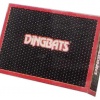
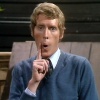
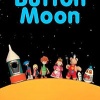
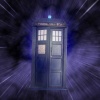
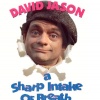
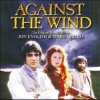
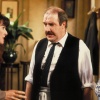

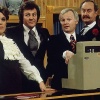
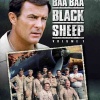
Do You Remember Catchphrase?
Do You Remember Catchphrase?
-

Anonymous
on
Bruce forsyth originaly hosted ctachphrase

-

Anonymous
on
Roy Walker was the original long time presenter, he was then replaced by Nick Weir (who broke his leg on stage) and then finally Mark Curry. One of the things I remember most was that most of the animations featured a Robot called Mr Chips. After the commercial break, there was always the Ready-Money Round, where there was no bell so contestants could try to win more. Phrases I remember would be "Say what you see, If you see it say it" or "It's good but it's not right"

Show previous comments